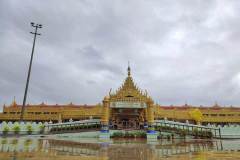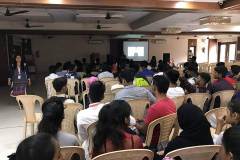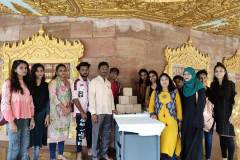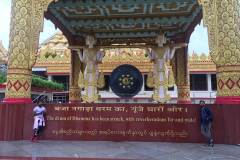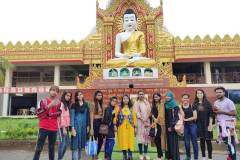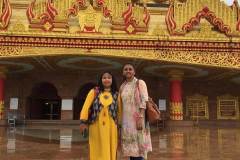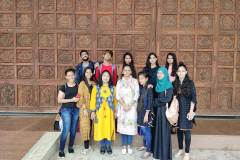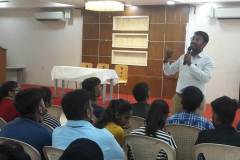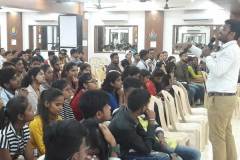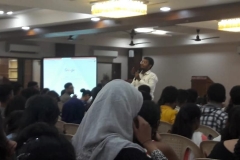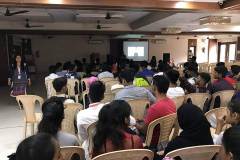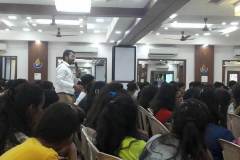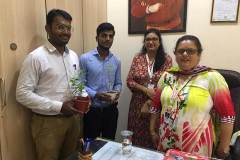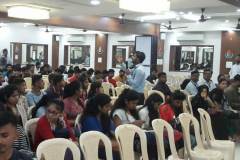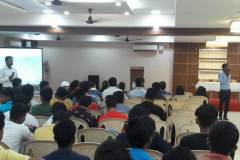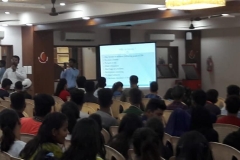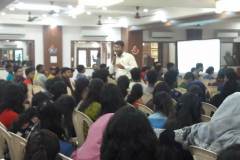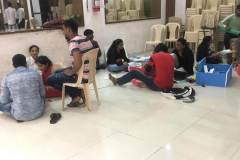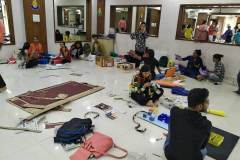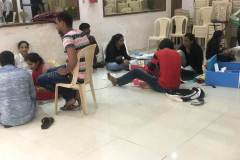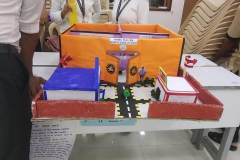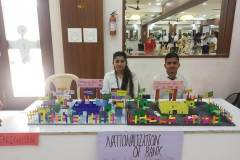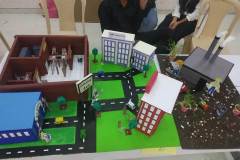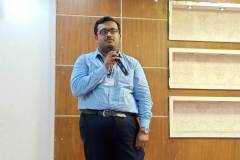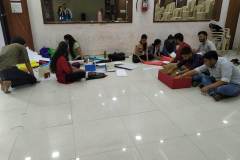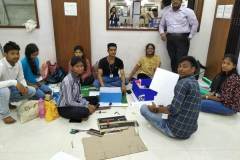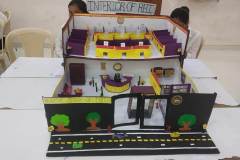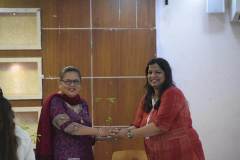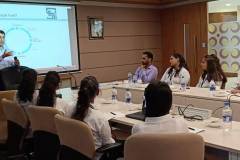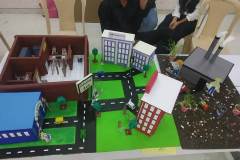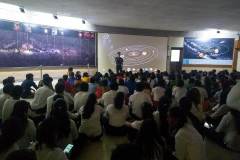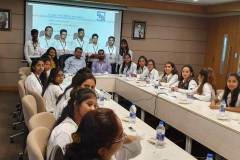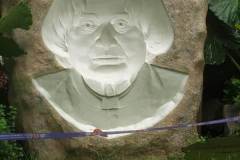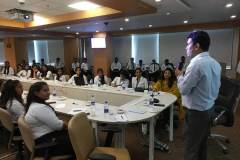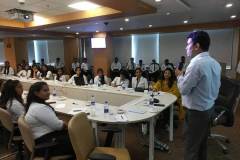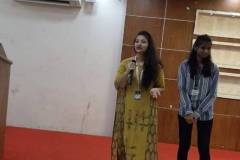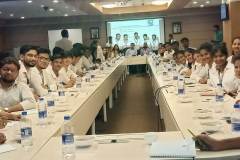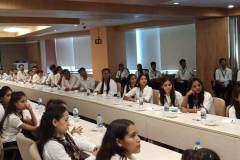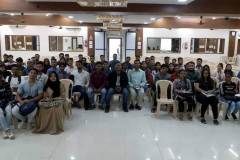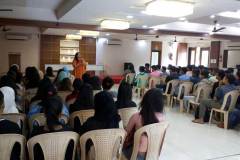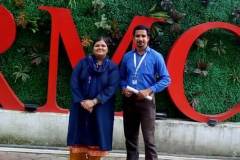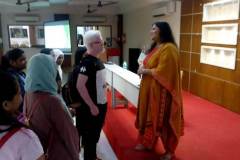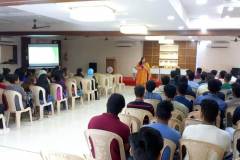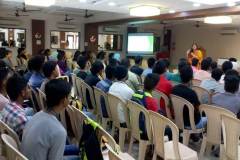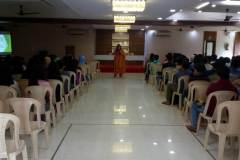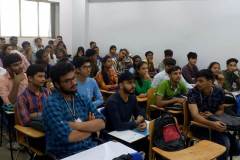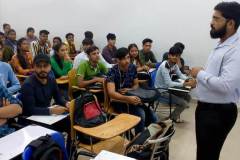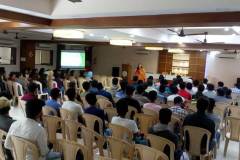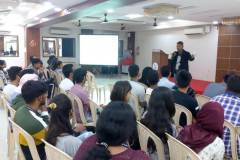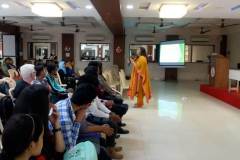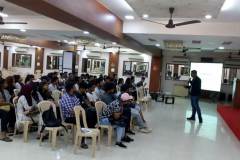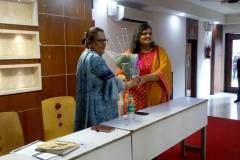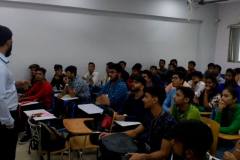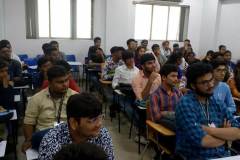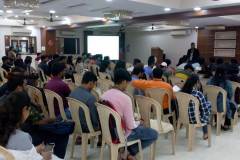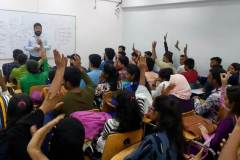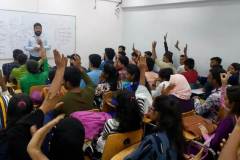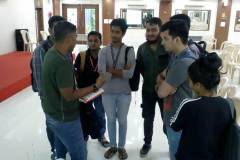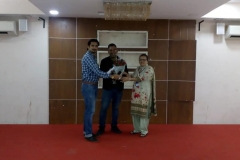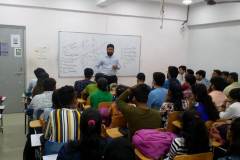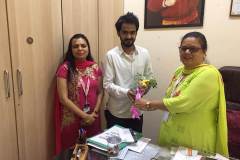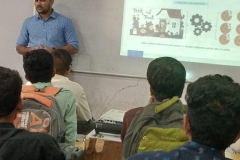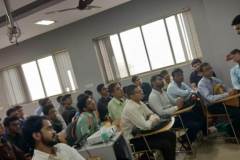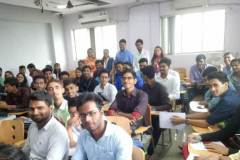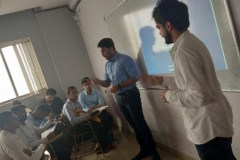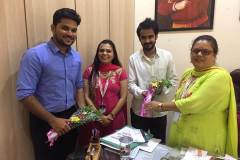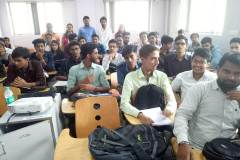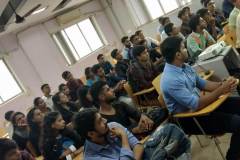B.A is a three-year course designed to develop an understanding of human at large. Apart from two distinct languages, students opting for a Bachelor of Arts degree learn basics of Anthropology, History, Literature, Psychology, Political Science, Philosophy, etc. These subjects combined together give students a clear understanding of how civilizations work and help in developing sought-after skills like critical thinking, communication and problem-solving.
A Bachelor of Arts is a broad interdisciplinary undergraduate degree program encompassing general education, electives and major area of study courses. B.A. programs generally give you more flexibility in choosing your course. By taking courses in the arts and humanities, you can deepen your cultural understanding and awareness, in addition to developing analytical, critical thinking, written and communication skills.
Bachelor of Arts (BA) is an undergraduate course. It is composed of many expressive disciplines and offers various subject combinations to candidates to choose from apart from 1-2 compulsory subjects. Candidates pursuing B.A course have the option of choosing major and minor in English, French or any other linguistic course, Psychology, Sociology, Philosophy, History, Religious Studies, and more subject areas.
After completion of the course, the degree qualification opens up opportunities in sectors such as Teacher, Content Writer/Features Writer, Public Relations Executive, Journalist, Social Worker, Customer Care Executive, and HR Executive. Some of the public sector areas where a BA degree holder can work are Banks, Indian Administrative Services, Secretariat, Indian Postal Department, and Indian Railways, Army and Navy and others such.
After completion of the course, a student can also pursue a Master's Degree related to their field of interest.
A candidate for being eligible for admission to the three-year integrated course leading to the degree of Bachelor of Arts must have passed the Higher Secondary School Certificate (Std. XII) examination conducted by the different Divisional Boards of the Maharashtra State Board of Secondary and Higher Secondary Education with the following subjects
1. English
2. Any one of the Modern Indian Languages or Modern Foreign Languages or any classical Language or Information Technology.
3. Any four subjects carrying 100 marks each.
OR
Must have passed the Higher Secondary School Certificate (Std. XII) examination with vocational subject conducted by the different Divisional Boards of the Maharashtra State Board of Secondary and Higher Secondary Education with the following subjects:-
1. English.
2. Any one vocational subject carrying 200 marks prescribed by the Board from time to time.
3. Any three subjects carrying 100 marks each.
Scheme of examination system –
(Traditional Course)
The performance of the learners will be evaluated on the basis of one component i.e. External Examination.
Semester End Examination – 100 marks
Duration – 3 hours.
- PSO 1: Graduates will display competence to work in a variety of testing careers like Social Scientist, Communications, Civil Services, psychologists and responsible professions like teaching.
- PSO 2: Learners with an arts degree will have the knowledge, insight, and skills to face pressing global concerns and successfully express solutions.
- PSO 3: Graduates will demonstrate ability to analyse, evaluate, and solve problems in a practical way.
- PSO 4: Graduates will demonstrate understanding and academic excellence in Historic Knowledge, Contemporary Global Issues, Indian Economy, Society, Psychology, International Relations, Human Rights, and Public Administration. The students will exhibit the ability to think critically and do research in political science.
| Semester 1 | ||
| Sr.No. | Subject | Objective |
| 1 | Foundation Course - I | To study about the various religions, caste, linguistic diversity, etc. in India. |
| 2 | Hindi | To make the students understand various stories and poems and also basic Hindi grammar. |
| 3 | Communication Skills in English | To enhance language proficiency by providing adequate exposure to reading and writing skills. |
| 4 | Economics I | This subject is designed to expose the students to the basic principles of microeconomic theory. The emphasis will be on the development of analytical thinking with the help of statistical tools among the students and develop the skill of application of microeconomics concepts to analyze the real-life situations. |
| 5 | History I | The course is designed to make the student aware about the making of modern India and the struggle for independence. |
| 6 | Sociology I | To introduce students to the basic concepts of social work and in the Indian context. |
| 7 | Psychology I | To impart knowledge of the basic concepts and modern trends in Psychology. |
| Semester 2 | ||
| Sr.No. | Subject | Objective |
| 1 | Foundation Course – II | To study about the LPG policy, farmer's suicide in India, etc. |
| 2 | Hindi | To let the students learn more about compositions, story writings, etc. |
| 3 | Communication Skills in English II | To orient the learners towards the functional aspects of language. |
| 4 | Economics II | As a logical sequence to Microeconomics Paper I, this paper is aimed at giving supply-side knowledge of Economics to the learner which will enhance their knowledge about aspects of production, cost, and revenue analysis, theories of distribution and understanding about the market structure. |
| 5 | History II | To make the students aware about Socio-Religious Reform Movements, Education, Press, and Transport, etc. |
| 6 | Sociology II | To acquaint students with the concept of development and apply critical thinking to them about the existing dilemmas, issues, and problems in the development of India. |
| 7 | Psychology II | To make the students aware of the applications of Psychological concepts in different areas of day to day life. |
| Semester 3 | ||
| Sr.No. | Subject | Objective |
| 1 | Foundation Course III | Develop a basic understanding about issues related to Human Rights of weaker sections, ecology, and science and technology. |
| 2 | Mass Communication I | To develop an awareness about the complexity of communication in a dynamic business environment and to introduce the students to some major aspects of communication and mass communication. |
| 3 | Economics III | The course is designed to develop the student’s understanding of the basic tools of microeconomic analysis. It builds on the material covered in semester 1 and is designed to help the student apply microeconomics to the real world. |
| 4 | History III | To enable the students to comprehend the transition of Europe from medieval to modern times and its impact on the world. To provide accurate knowledge of the most significant events and personalities of the period under study and encourage understanding of the making of the modern world. |
| 5 | PSYCHOLOGY III | To impart knowledge of the basic concepts and modern trends in Social Psychology and To impart knowledge and understanding of the basic concepts, principles, perspectives and modern trends in Developmental Psychology. |
| 6 | SOCIOLOGY III | To make the learner aware of the context of sociology and social welfare. |
| Semester 4 | ||
| Sr.No. | Subject | Objective |
| 1 | Foundation Course IV | To study about Significant, contemporary Rights of Citizens, Approaches to understanding Ecology, etc. |
| 2 | Mass Communication | To develop among the students a critical understanding of the Mass Media with regard to their presentation formats, roles and audiences in the Indian context. |
| 3 | Economics IV | This paper is designed to build on the understanding of basic macroeconomic identity introduced in sem II. The various components are detailed here in the context of a closed economy. The objective is to enable the student to understand how the interest rate and income level are determined in a closed economy and how a policy may affect these outcomes. |
| 4 | History IV | To acquaint the students with different sources of Ancient Indian History. To enable the students to understand the political, socio-economic and cultural developments in the period under study and appreciate the rich cultural heritage in India. |
| 5 | PSYCHOLOGY IV | To make the students aware of the applications of the various concepts in Social Psychology in the Indian context and To make the students aware of the implications and applications of the various concepts, principles, and theories of Developmental Psychology in daily life in the Indian context. |
| 6 | SOCIOLOGY IV | To acquaint students with the changes in the field of social welfare. |


